Sexual Violence and Male Survivors: a Dialogue between Two Male Survivors Who Are Thriving (#SVYALit)
 In June, as part of the #SVYALit Project, we will be discussing the topic of male survivors of sexual abuse. Current stats indicate that by the time they reach the age of 18 1 in 6 males will be the victim of sexual abuse. Today YA author G. Donald Cribbs interviews a fellow male survivor and therapist about the topic.
In June, as part of the #SVYALit Project, we will be discussing the topic of male survivors of sexual abuse. Current stats indicate that by the time they reach the age of 18 1 in 6 males will be the victim of sexual abuse. Today YA author G. Donald Cribbs interviews a fellow male survivor and therapist about the topic.
Donald: Gerry, thank you for joining me today as we talk about sexual violence for male survivors, what that looks and feels like, and the particular struggles male survivors identify on their journey toward wholeness and healing.
ADVERTISEMENT
ADVERTISEMENT
To begin, can you please introduce yourself and your credentials as far as how they apply to today’s topic?
Gerry: My name is Gerry Crete and I’m a licensed professional counselor, licensed marriage and family therapist, and a certified clinical trauma professional. I have a doctorate from the University of Georgia and my dissertation topic was resilience of male survivors of sexual abuse. As a survivor myself, I was drawn to this topic out of a desire to advocate for other male survivors and to make a difference in the way that society sees this problem.
Donald: My name is Donald Cribbs, and I am currently employed as a Therapeutic Support Staff (TSS) in behavioral health and rehabilitation services. I work with clients who are school-aged, in schools, their communities, and homes. During the summer, I often work at our intensive therapy camp, which allows me to work with other staff members and clinical professionals. During the rest of the year, I also work some shifts at our inpatient hospital which has three sections, adult, child/adolescent, and extended acute care.
While I am a mental health professional, I am also a graduate student at Messiah College for a master’s degree in clinical mental health counseling. I may be nowhere near your caliber of qualifications, Gerry, but the thing that makes us equals is unfortunately that we have both grieved, faced, and survived our childhood sexual abuse. I join you in seeking to find ways to support other male survivors through my writing and advocacy.
What is the difference between identifying as a victim and a survivor of sexual violence? Why is this harder to disclose for male survivors in particular?
Gerry: I would say that I was a victim in the past, but now I am a survivor in the present. Victimhood occurred in the past and identifying solely as a victim keeps me stuck in the past. In the present, however, I am not only surviving but also thriving. This is not meant to deny either the painful realities of the past or the struggles of the present, but it is a way to stay focused on the present and the future in a positive way.
Most male survivors do not disclose for a variety of reasons. Boys are often socialized to believe that there is shame in being a victim. They might hope that if they just forget about it, that it will go away. They may fear that if other people know about it, then they will be judged or blamed. In many cases sexual abuse involves seduction by an older person and the boy may experience pleasure. If this is the case, then the boy may have a lot of confusing thoughts and feelings. He might feel that he was somehow responsible for the abuse. He might question his sexual identity. If the abuser is someone he cares about, like a family member, then he might be afraid that something bad will happen to that person. He might be afraid of the perceived “fall out” that will come in the family with disclosure. These are just a few, but there are many more reasons why male survivors avoid disclosure.
Donald: These are all excellent points, Gerry. Thank you. Several points you made resonate with me as a survivor. I follow a continuum of: victimà survivor à adaptor à thriver à overcomer
I have also been studying about posttraumatic stress disorder (PTSD), posttraumatic stress symptoms (PTSS), posttraumatic growth (PTG), and resilience, which make a kind of continuum of their own. I appreciate what you said about surviving and thriving, that these aspects of our healing journey are not necessarily separate from painful memories, or current struggles, as you said. As a childhood sexual assult (CSA) survivor, we live in an interesting paradox of opposites at times. We might experience growth or resilience in one moment, and then something may trigger us, opening old, painful wounds.
What are the stigmas our culture has perpetuated surrounding male survivors of sexual violence and sexual abuse?
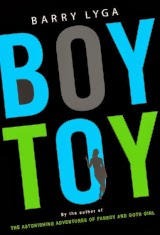 Gerry: The stigma around sexual violence and abuse is so great that our culture is afraid to talk about it. It is this silence that keeps victims living in fear and shame. Our culture teaches that men must be strong, independent, and invulnerable. Sexual violence and abuse creates a wound that is personal, physical, and relational. Deep down victims may fear that they are so damaged that no one would love them if they knew the truth. Society perpetuates this lie by promoting the image of the stoic, tough, and self-sufficient male. Instead society needs to learn how to nurture, heal, and connect with boys, not just with survivors of sexual abuse, but also with all boys, so that they grow up as secure and compassionate men.
Gerry: The stigma around sexual violence and abuse is so great that our culture is afraid to talk about it. It is this silence that keeps victims living in fear and shame. Our culture teaches that men must be strong, independent, and invulnerable. Sexual violence and abuse creates a wound that is personal, physical, and relational. Deep down victims may fear that they are so damaged that no one would love them if they knew the truth. Society perpetuates this lie by promoting the image of the stoic, tough, and self-sufficient male. Instead society needs to learn how to nurture, heal, and connect with boys, not just with survivors of sexual abuse, but also with all boys, so that they grow up as secure and compassionate men.
Donald: Coming to terms with abuse and surviving sexual violence is hard enough. What do you see as essential for male survivors?
Gerry: It is essential for male survivors to engage in the process of healing. At first this might mean disclosing to a trustworthy person. I recommend seeing a professional counselor who specializes in trauma recovery in order to begin the process of remembering the past and mourning this loss. In my experience shame and isolation are the poisons of abuse. The essential antidotes are acceptance and community.
Donald: Once a male survivor has shared his experience with others, what might be appropriate next steps? Can you suggest any online resources for male survivors?
Gerry: www.malesurvivor.org and www.1in6.org are excellent online resources.
Donald: How can I know if my experience as a male survivor has affected my sexual identity? Is there hope for me?
Gerry: One reason why childhood sexual abuse is so wrong is that it can disrupt a person’s natural sexual identity development. Many male survivors of sexual abuse question their sexual orientation or experience unwanted or confusing sexual desires. Sometimes survivors re-enact their abuse in some way. This is the brain’s way of trying to resolve past trauma. Unfortunately reliving the trauma through pornography or with others causes more confusion, shame and bad feelings.
The good news is that a counselor who specializes in treating sexual abuse can help a survivor to work through these confusing thoughts and feelings and distinguish between one’s own identity and any effects from the abuse. A survivor can reclaim his own sexual identity apart from the abuse and build a better future.
Donald: Do I have to go to a counselor or seek counseling? Why or why not?
 Gerry: Sexual abuse is a very serious trauma and counseling is highly recommended. In my opinion, the sooner you begin treatment, the better. If you had a physical injury, like a broken leg, you would want it treated by a doctor right away. You wouldn’t want to limp around in pain for years and risk infections or other complications. Guys often dismiss, deny, and suppress their feelings and avoid their pain. Counseling is an opportunity to begin the healing process and take your life back.
Gerry: Sexual abuse is a very serious trauma and counseling is highly recommended. In my opinion, the sooner you begin treatment, the better. If you had a physical injury, like a broken leg, you would want it treated by a doctor right away. You wouldn’t want to limp around in pain for years and risk infections or other complications. Guys often dismiss, deny, and suppress their feelings and avoid their pain. Counseling is an opportunity to begin the healing process and take your life back.
Donald: I can admit to having a negative initial experience with counselors and counseling, yet here I am working in mental health and seeking to become a counseling professional. Thankfully, I have good news that not all counselors or counseling is negative, and I have benefitted from receiving good counseling. I hope those reading this interview will seek out a counseling option that is best for them.
Speaking of options, what are my options with regards to my healing journey? Will it ever get any better than it is today?
Gerry: If you are struggling with this alone, but are willing to begin the healing journey, then the answer is a definitive yes.
Donald: What else can I do to deal with it? What shouldn’t I do to deal with it?
Gerry: It is so important that you don’t deal with this alone. Avoid turning to alcohol, drugs, sex, television, gambling, the Internet, you name it, to numb the pain. My belief is that healing happens through growth fostering relationships. When you risk vulnerability with someone that you trust, and that person responds with compassion and understanding, then healing happens.
Donald: Am I alone? Is it just me? How common is this for male survivors?
Gerry: You are not alone. It is estimated that one in six men have experienced sexual abuse or assault.
Donald: As a professional, what have you learned that can help me deal with this right now?
Gerry: If you are currently being abused, then you need to seek help immediately. If you are not currently being abused, then it is important to recognize that you might become triggered by people or things that remind you in some way of the abuse. When this happens, it is helpful to first acknowledge that you are safe and take deep breaths. Be conscious of how your body responds to triggers. Notice if your muscles tense or if your breathing changes. As you inhale, tense your muscles; then as you exhale, relax your muscles. Do this until the tension goes away. Practice prayer and/or meditation.
Donald: Would it help me to read books about other male survivors, or will it just make it worse, or possibly trigger me?
Gerry: Reading a book about other male survivors can validate your experiences and help you process your own thoughts and feelings. It can also help you recognize the reality that you are not alone.
It is possible, however, to be triggered by stories similar to your own, so be conscious of your reactions. It is a good idea to journal your thoughts and feelings as you read. There is nothing wrong with feeling angry or sad when reading a book about abuse. But if you notice that you are having a traumatic reaction such as increased heart rate, tense muscles, changes in breathing or feelings of fear, then put the book away and reach out to a trusted friend or family member.
Donald: How can I cope with the memories, flashbacks, nightmares, or times when I become triggered? What does it mean to “revisit the trauma”?
Gerry: If you are experiencing these symptoms on a regular basis then you need to speak with a counselor who specializes in trauma. There are many treatments that can reduce and possibly eliminate these symptoms.
Donald: Gerry, thank you very much for taking the time out of your schedule for this important discussion. Male survivors need fellow male survivors to know they are not alone, that survival and the ability to thrive and move beyond the abuse is possible.
If you have questions, or you’d like to join this discussion, you may comment below; however, please understand, this is not a substitute for counseling. If you need to speak with someone immediately, call RAINN (Rape, Abuse, and Incest National Network):
National Sexual Assault Hotline: 1.800.656.HOPE (4673) or www.rainn.org
About Donald Cribbs:
G. Donald Cribbs has written and published poetry and short stories since high school. Donald is a graduate of Messiah College in English and Education, and is currently a graduate student in Clinical Mental Health Counseling. He and his wife and four boys reside in central Pennsylvania where the author is hard at work on his next book, the sequel to his debut novel, THE PACKING HOUSE (2015), by Booktrope. Having lived and traveled abroad in England, France, Belgium, Germany, China and Thailand (you can guess where he lived and where he visited), the author loves languages and how they connect us all. Coffee and Nutella are a close second. Learn more at his blog.
More About Male Survivors:
On June 24th author Eric Devine will be moderating our next #SVYALit panel discussion which will feature the author of Boy Toy, Barry Lyga, and the author of Swagger, Carl Deuker. The conversation will take place live at 12 Eastern and be archived as part of The #SVYALit Project for everyone to hear.
You can read Donald Cribbs review of Swagger here: Book Review for SWAGGER: http://gdonaldcribbsbooks.blogspot.com/2015/05/book-review-swagger-by-carl-deuker.html.
ADVERTISEMENT
ADVERTISEMENT
We have a booklist featuring male survivors of sexual violence here. In addition I would recommend the newer titles The Gospel of Winter by Brendan Kiely and Forgive Me, Leonard Peacock by Mathew Quick.
Please visit the #SVYALit Project Index for more information and links to all of the posts.
About the Books:
Swagger by Carl Deuker
Publisher’s Annotation: When high school senior Jonas moves to Seattle, he is glad to meet Levi, a nice, soft-spoken guy and fellow basketball player. Suspense builds like a slow drumbeat as readers start to smell a rat in Ryan Hartwell, a charismatic basketball coach and sexual predator. When Levi reluctantly tells Jonas that Hartwell abused him, Jonas has to decide whether he should risk his future career to report the coach. Pitch-perfect basketball plays, well-developed characters, and fine storytelling make this psychological sports novel a slam dunk.
Boy Toy by Barry Lyga
Five years ago, Josh’s life changed. Drastically. And everyone in his school, his town—seems like the world—thinks they understand. But they don’t—they can’t. And now, about to graduate from high school, Josh is still trying to sort through the pieces.
Heather Booth says: “I think this is a good one because the boy needs to confront and understand the problems with society’s idea of male sexuality before he can admit that he was actually abused by his teacher.”
Filed under: #SVYALit, #SVYALit Project
About Karen Jensen, MLS
Karen Jensen has been a Teen Services Librarian for almost 30 years. She created TLT in 2011 and is the co-editor of The Whole Library Handbook: Teen Services with Heather Booth (ALA Editions, 2014).
ADVERTISEMENT
ADVERTISEMENT
SLJ Blog Network
One Star Review, Guess Who? (#202)
This Q&A is Going Exactly As Planned: A Talk with Tao Nyeu About Her Latest Book
More Geronimo Stilton Graphic Novels Coming from Papercutz | News
Parsing Religion in Public Schools
ADVERTISEMENT



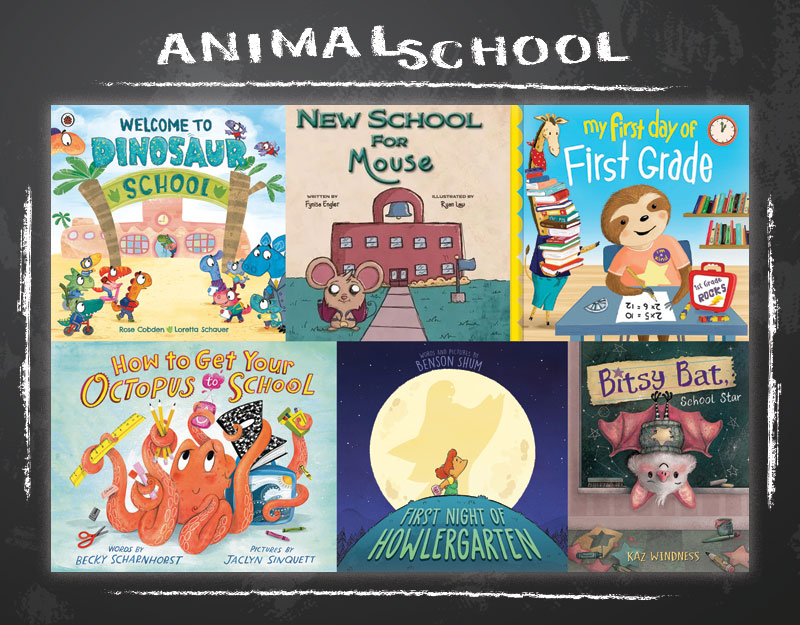
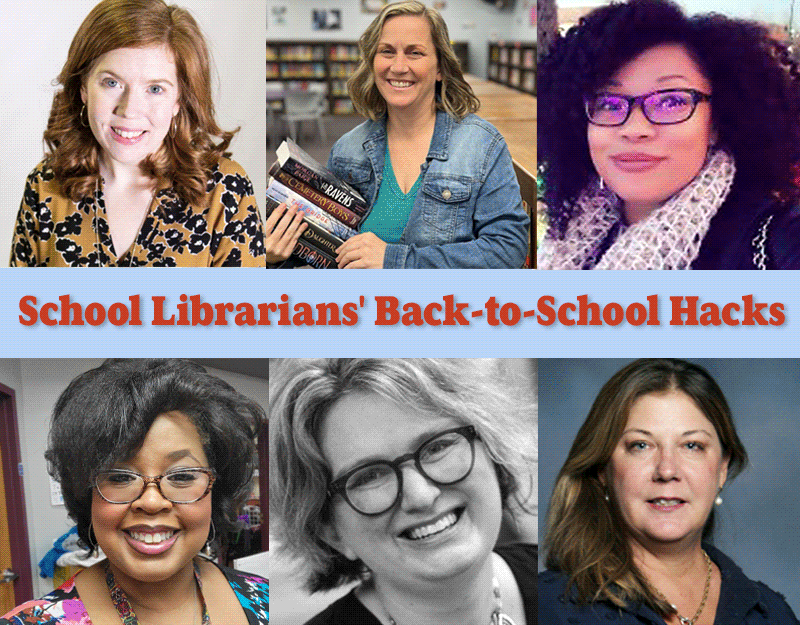
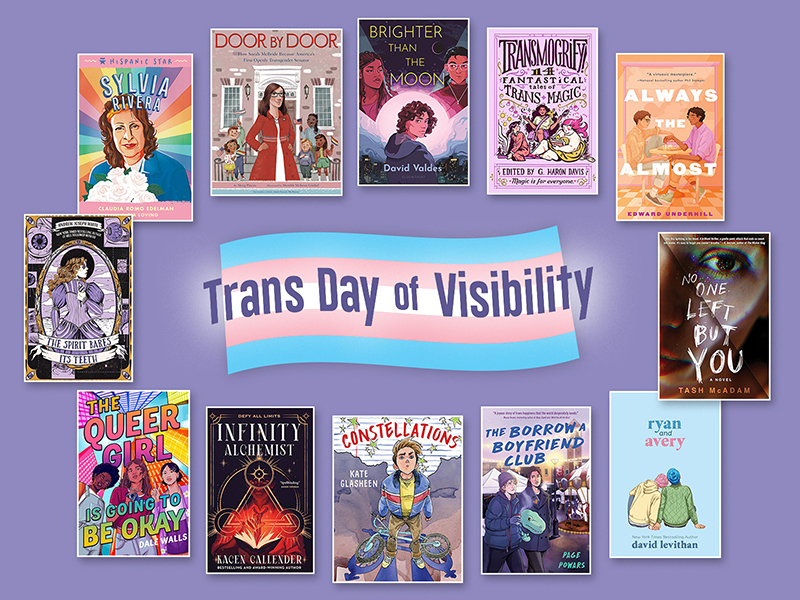

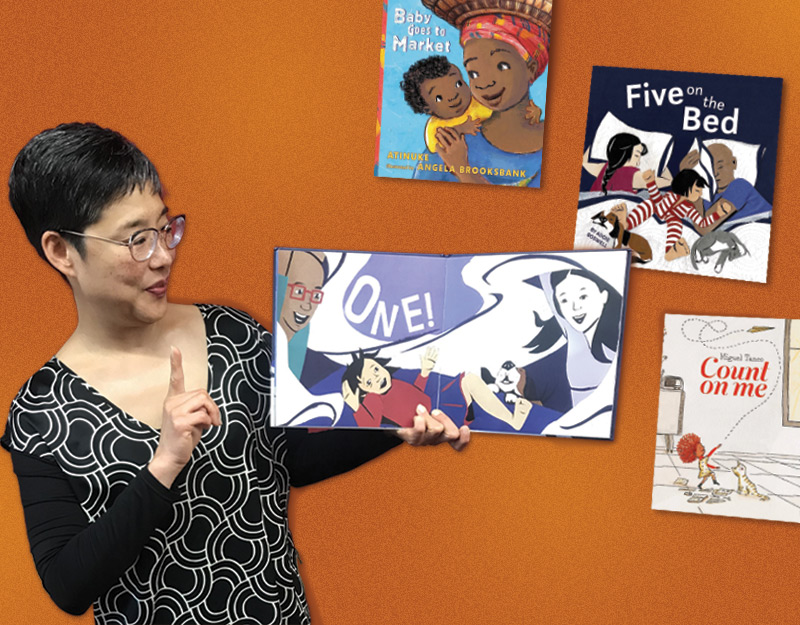
Great analysis, the reason, think it is hard for men to acknowledge is just some ego in them and fear of being shunned by the society. Well that’s my opinion…
it is true that sometimes survivors re-enact their abuse in some way. This is the brain’s way of trying to resolve past trauma. Unfortunately reliving the trauma through pornography or with others causes more confusion, shame and bad feelings.
Great article…Great analysis, the reason, think it is hard for men to acknowledge is just some ego in them and fear of being shunned by the society. W
true that sometimes survivors re-enact their abuse in some way. This is the brain’s way of trying to resolve past trauma. Unfortunately reliving the trauma through pornography or with others causes more confusion, shame and bad feelings.